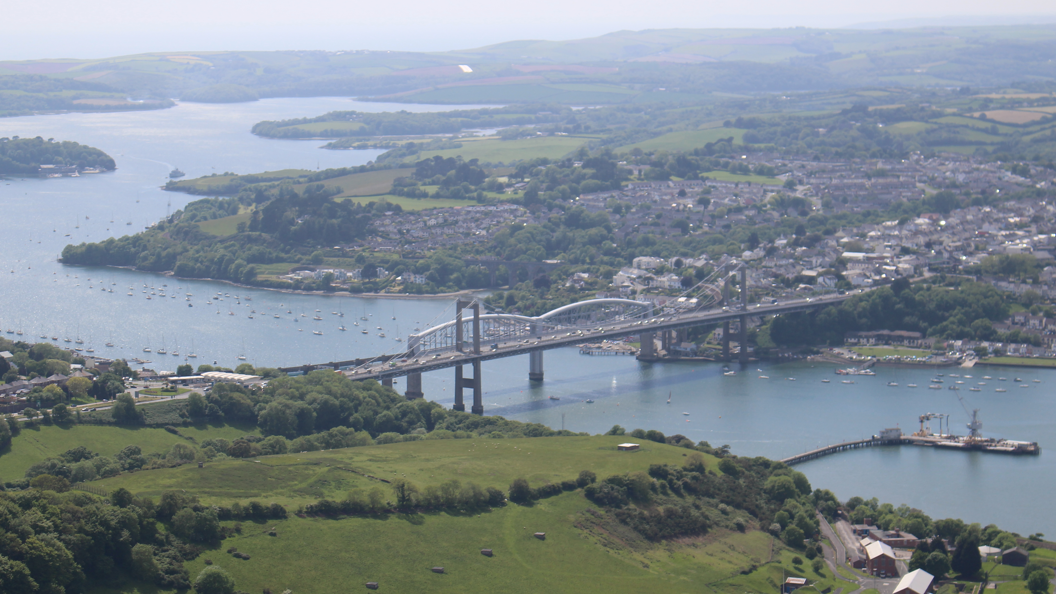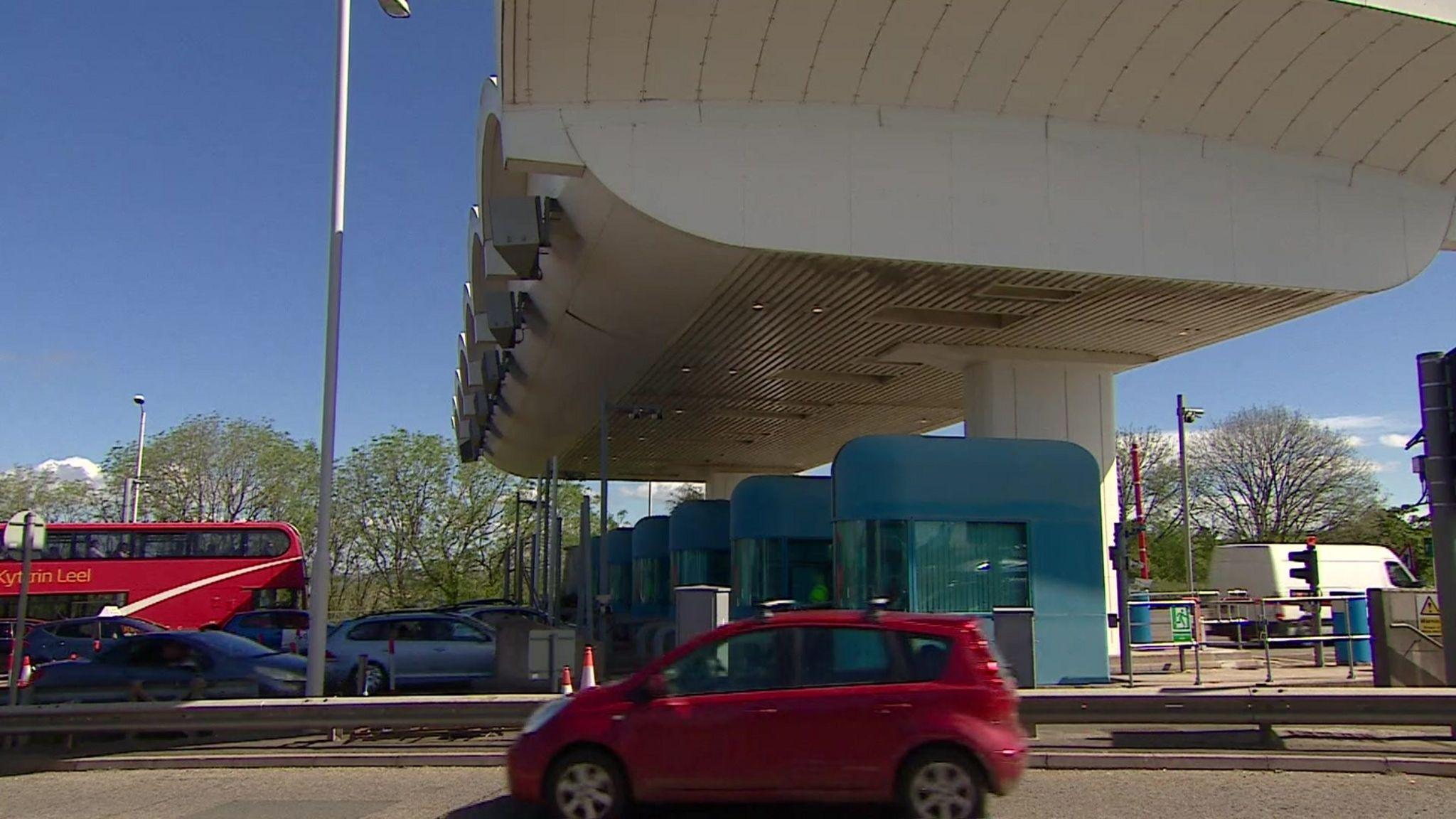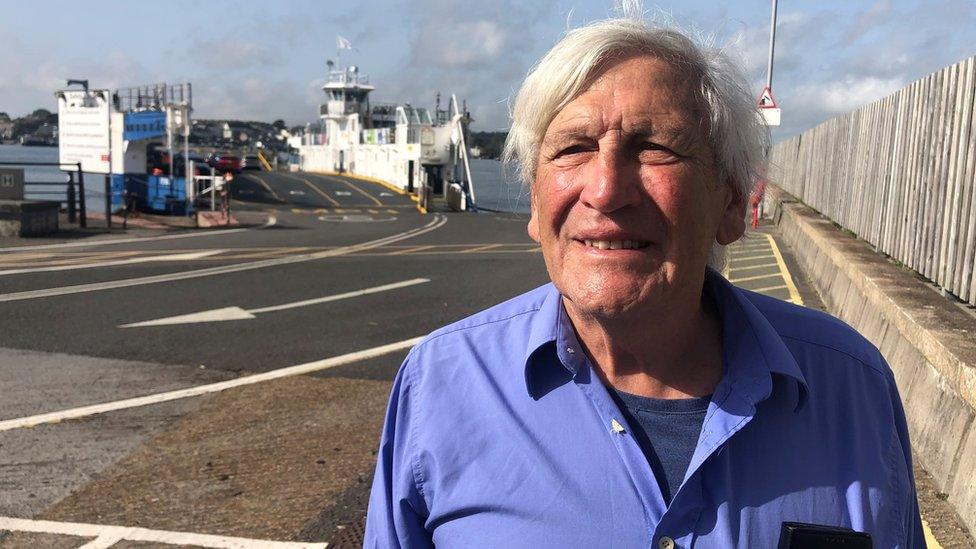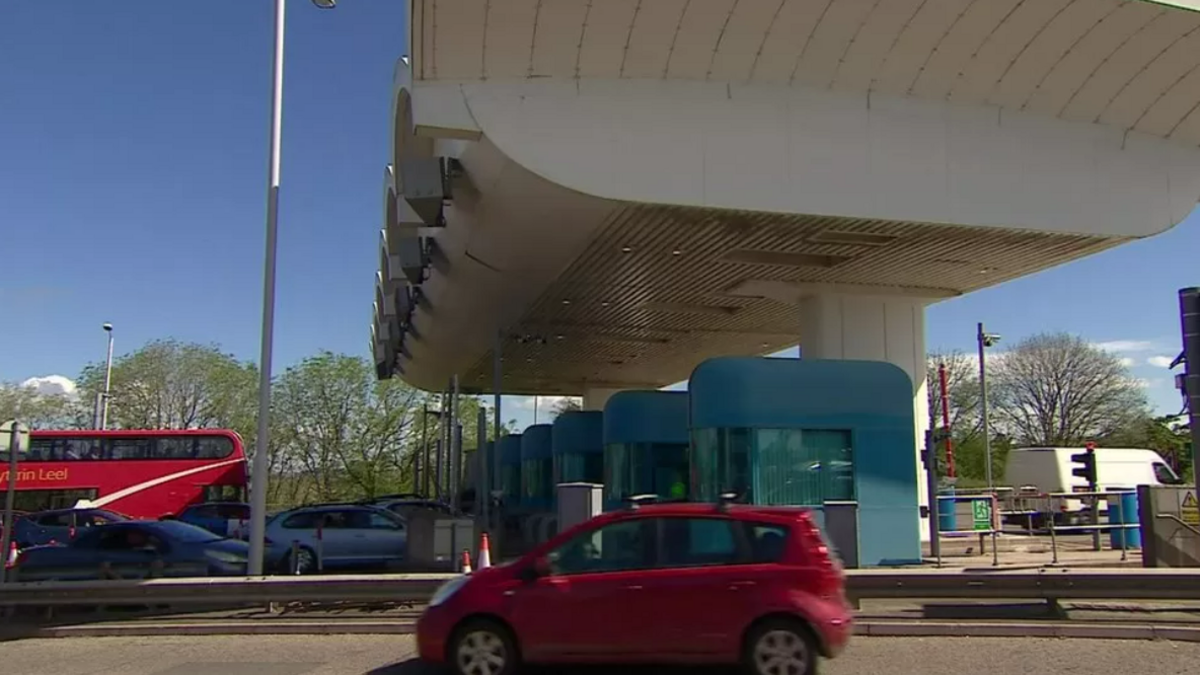Bid to scrap tolls for Tamar crossings delayed

The owners of the Tamar Bridge face high inflation, interest rates, and escalating energy costs
- Published
Tolls for crossing the River Tamar between Cornwall and Plymouth will continue after a motion to scrap them was delayed.
A motion to Cornwall Council by Liberal Democrat group leader councillor Colin Martin, called for the bridge and ferry tolls to be funded by the government.
But the council was told that the government had already refused requests for support.
Council chairman, councillor Pauline Giles, said the matter would be passed to the Tamar Bridge and Torpoint Ferry Joint Committee which would have up to six months to consider it.
'Struggling' families
The committee, which co-owns the crossings with Plymouth City Council, has been facing inflation, interest rates, and escalating energy costs.
It had said tolls could rise to £3.20 without a tag next year.
They are currently £2.60, having risen from £2 in January.
The two crossings together handle about 18m vehicles a year, comprising 16m on the bridge and 2m on the ferries.
Mr Martin said the delay in discussions made it inevitable that tolls "are certain to be increased again" in the new year, the Local Democracy Reporting Service (LDRS) reported.
"Abolishing the Tamar tolls would be good for local families struggling with the cost of living, good for local businesses who have to cross the river multiple times each week and good for the environment because it would reduce congestion and detours," he said.
He also said the Tamar Bridge is part of the strategic highway network and should be funded by central government, like the rest of the major roads in the country.
Councillor Richard Williams-Pears, the council’s Conservative portfolio holder for transport, said the council and the joint committee had repeatedly asked the government for financial support, but had been refused.
"Meetings with local MPs have also taken place without any indication that financial support will be forthcoming," he said.
He said the crossings operate on a user-pays basis, but offer "one of the most generous discounts" in the country for pre-paid crossings.
He said the council would continue to pursue government support, but until then, the tolls were necessary to maintain the crossings.
Follow BBC Cornwall on X (formerly Twitter), external, Facebook, external and Instagram, external. Follow BBC Devon on X (formerly Twitter), external, Facebook, external and Instagram, external. Send your story ideas to spotlight@bbc.co.uk, external.
Related topics
- Published6 October 2023

- Published8 October 2023

- Published8 September 2023
